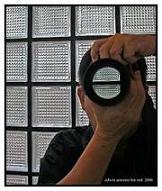Spotting Narcissists
 We have to make judgements about other people every day of our lives.
We have to make judgements about other people every day of our lives. Notice that I said "judgments about" other people, not "judgments of" other people.
Is this person honest? Is that person trustworthy? Can this person handle the task at hand? Is that person one who habitually steps over the line?
If you don't make sensible, reason-and-fact based judgments about other people, you are dead meat. For, the judgements you make determine how much trust you invest in others.
Trust everyone you meet and you are going to buy the Brooklyn Bridge or property in Florida, sight unseen. You are going to end up married to a psychopath or narcissist. You are going to confide in a character assassin. You are going to vote for an Adolf Hitler.
Anyone can be fooled, but it's best to make fooling us as difficult as possible. And we do that by making sensible judgements about the people in our lives.
Everyone needs to know how to recognize a psychopath or narcissist - or any personality disordered person for that matter.
I occasionally reject a comment from someone (probably a narcissist) who wants to tell us we're bad for "diagnosing" people. That we should leave it to the professionals. Never let anyone con you with that.
I love that "Let us take care of you (because we know better than you what's good for you)" philosophy. Hey, who loves ya, baby? You. Self reliance.
Besides, are the professionals and social workers protecting us from these predators? No. Then what? It's some kind of sin for us to be on our guard?
Of course we can't "diagnose" people. We can't decide to have them committed. We can't be like narcissists and slander others by labeling them by name publicly as a narcissist.
But we have every right - nay, we MUST learn to spot narcissists and other predators. Because we mustn't trust them.
Dr. Robert Hare's attitude is a good example. He works hard to make sure that his psychopathy checklist isn't misused or abused. He insists that it be used only by specially trained professionals in the proper setting. Yet he also writes articles explaining the profile of a psychopath for the average person, warning that all people must learn to recognize psychopaths, so that we don't fall easy prey to them.
In other words, there's a big difference between diagnosing or publicly labeling a person as a pathological narcissist and simply making your own private judgement about him or her.
If you are honest, you will probably be correct, because normal people just don't do some of the backwards things pathological narcissists do. These behaviors are too bizarre. I hear from many that while reading my Website they felt as though I had to be present in their home and was writing about their own husband/wife/brother/sister. When the description fits, it fits tight.
And so what if a psychiatrist would diagnose that person as a psychopath instead of a narcissist? They're both predators. So the difference is purely academic and the conclusion is the same: stay away. Besides, psychiatrists often differ in their dignoses and usually diagnose more than one personality disorder in a patient.
There's a big difference between a mental disorder and a personality/character disorder. People need to know that personality disorders are serious business, especially the two predatory ones, NPD and psychpathy. People need to recognize the warning signs.
Because predators are predators: we need to stay as far away from them as we can. It's our right to do so: the right to self preservation and the right to pursue happiness.
Kathleen Krajco

<< Home